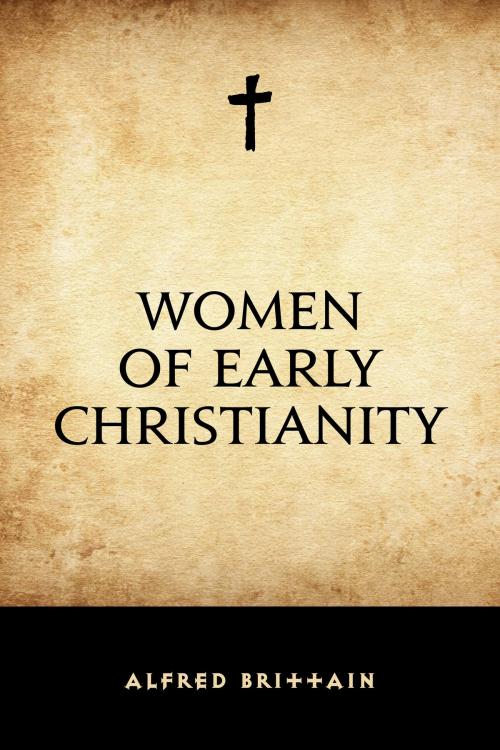Women of Early Christianity
Nonfiction, Religion & Spirituality, Christianity, Church, Church History, History, Ancient History, General Christianity| Author: | Alfred Brittain | ISBN: | 9781518326219 |
| Publisher: | Krill Press | Publication: | December 5, 2015 |
| Imprint: | Krill Press | Language: | English |
| Author: | Alfred Brittain |
| ISBN: | 9781518326219 |
| Publisher: | Krill Press |
| Publication: | December 5, 2015 |
| Imprint: | Krill Press |
| Language: | English |
**This is a history of some of the crucial women who played influential roles in Christianity's origins. From the introduction: **
"The position of woman has been more influenced by Christianity than by any other religion. This is not because there have not been noble sentiments expressed by non-Christian writers; for among the rabbinical writers, for instance, are many fine sentiments that could have come only from men who clearly perceived the place of woman in an ideal human society. Nor because in Christianity there have not been men whose conception of woman was more suitable to the adherents of those faiths that have regarded her as a thing unclean. But from the very nature of the appeal which Christianity has made to the world, the place of woman in society has been changed. The new faith appealed to all mankind in the name of the humanity which the Son of God had assumed, and consequently it was forced to treat men and women as on a spiritual equality. It was forced by the natural desire for consistency to break down any barriers that might keep one-half of the human race from the full realization of the possibilities of their natures, which were made in the image of God. It is in this relation of Christianity to the world, quite as much as in the sayings and precepts of its Founder and his Apostles, that has been found the ground for the great work of Christianity in raising the position of women in the world."
**This is a history of some of the crucial women who played influential roles in Christianity's origins. From the introduction: **
"The position of woman has been more influenced by Christianity than by any other religion. This is not because there have not been noble sentiments expressed by non-Christian writers; for among the rabbinical writers, for instance, are many fine sentiments that could have come only from men who clearly perceived the place of woman in an ideal human society. Nor because in Christianity there have not been men whose conception of woman was more suitable to the adherents of those faiths that have regarded her as a thing unclean. But from the very nature of the appeal which Christianity has made to the world, the place of woman in society has been changed. The new faith appealed to all mankind in the name of the humanity which the Son of God had assumed, and consequently it was forced to treat men and women as on a spiritual equality. It was forced by the natural desire for consistency to break down any barriers that might keep one-half of the human race from the full realization of the possibilities of their natures, which were made in the image of God. It is in this relation of Christianity to the world, quite as much as in the sayings and precepts of its Founder and his Apostles, that has been found the ground for the great work of Christianity in raising the position of women in the world."















